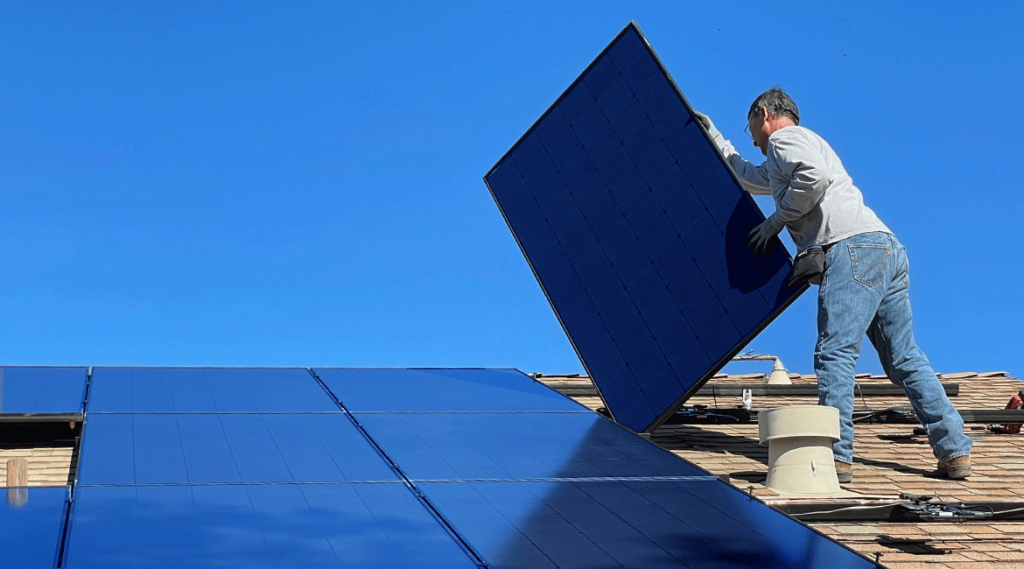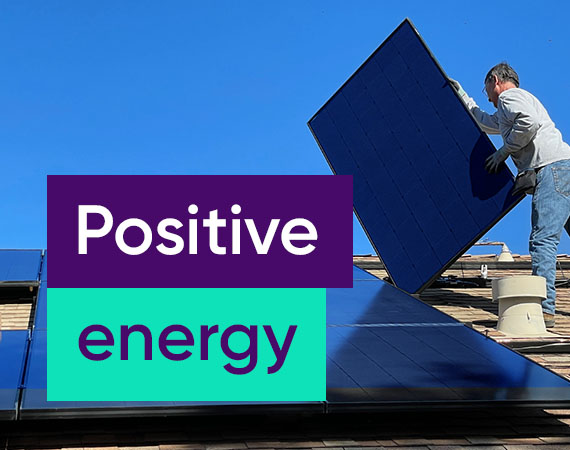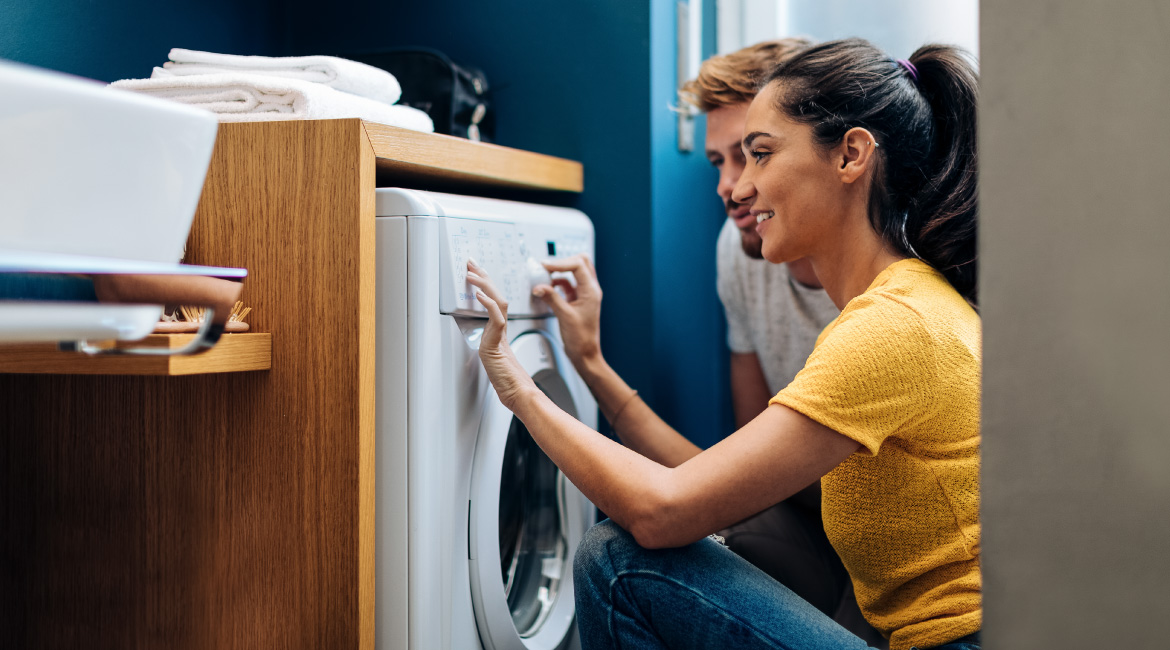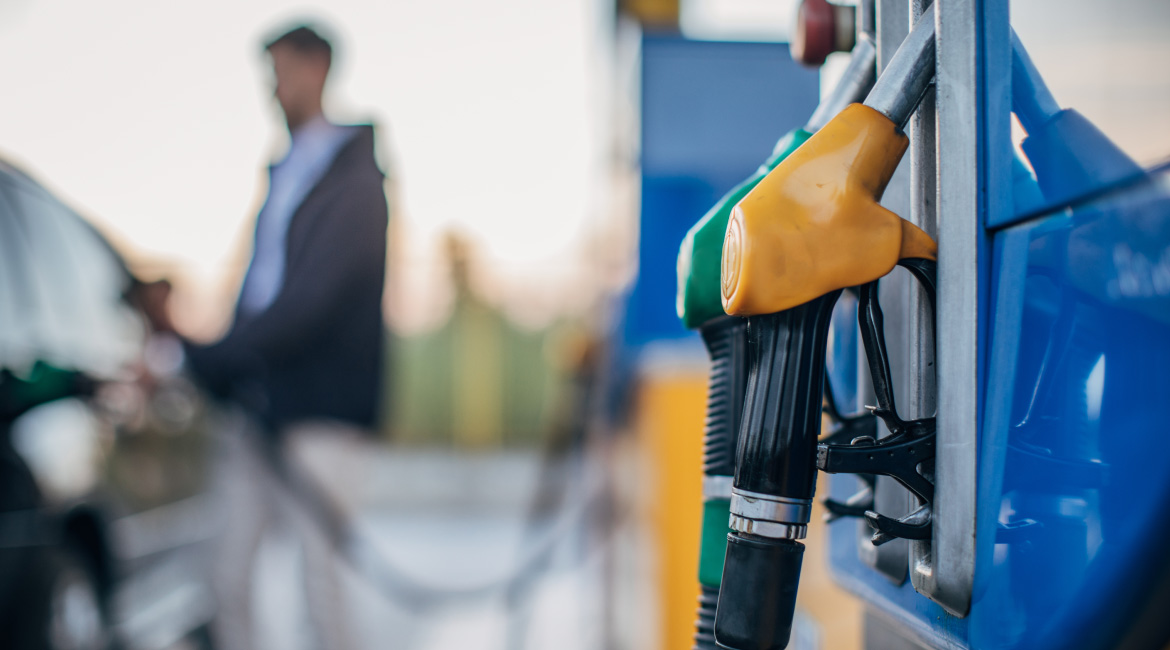
Yes. The answer is yes. You should start thinking about rooftop solar. Mostly because rooftop solar is easier, cheaper, and more powerful than it’s ever been before, but also because it can save you big money in the long term (doing your bit to prevent the planet from becoming an irradiated water world is also a sweet perk).
With energy prices going up, and solar installation costs going down, there’s never been a better time to make the switch. But how do you go about installing rooftop solar? And where should you start? Let’s break down some of the basics.
What is rooftop solar?
Rooftop solar is usually made up of four parts: the solar panels themselves, a solar inverter, some racks to mount everything, and a monitoring system, so you can keep tabs on your power. Solar panels are simply a collection of 60-or-so solar cells that harness the sun’s energy and feed it back into your home (the 60/66-cell size is considered ‘residential’; anything beyond that is a ‘commercial’ solar unit). There are dozens of solar brands out there, so make sure you do your research on a site like Choice.
How much will it cost to install?
Not as much as it used to! Installation prices have fallen roughly 58% in the last six years, and a 6.6kW solar system (which is the average residential unit) will probably set you back between $5000 and $10,000, depending on the brand and the size of the system. Choice has a handy solar sizing guide over here. It’s a significant upfront cost, to be sure, but most houses will earn that money back in energy savings within three to five years. If you’d like to crunch the numbers, there are plenty of good online solar calculators, too.
Is my house suitable for solar?
Most houses will benefit from rooftop solar, but there are a few things to consider first. Do you live in a sunny location? Are there big trees shading the roof of your house? Does your council require any specific permits or approvals? Do you have a north-facing roof? None of these are necessarily deal-breakers, but they might impact how much energy your system produces.
Does price matter?
Yes and no. More expensive panels aren’t automatically better than cheaper ones. In fact, you’re usually paying for a better solar inverter (which is the part that tends to wear out fastest). Plus, cheaper panels often mean you can afford to install more of them, which boosts your system’s overall performance. As always, it’s a balancing act between your budget, your energy goals, and the size and location of your home. Always chat to a solar professional and get some tailored quotes before committing to a system.
Do I need a battery?
You don’t need a battery to get started with rooftop solar. They can be useful for storing your excess energy, which lets you tap the system in winter instead of relying on the grid, but they’re not essential. Batteries are still quite expensive, so they’ll delay your system’s payback timeline, but the technology is getting cheaper and more accessible every year. If you do want to go down the battery route, just make sure your solar PV system is battery-compatible (not all of them are).
Are there any incentive programs or subsidies?
The best news? There are incentives everywhere to install a rooftop solar system. Some banks, like Bank Australia, offer discounts on home loans if you tick several clean energy boxes. Most state governments have solar rebate programs, which make the switch much cheaper — Victorians, for example, can get up to $1400 off installation through the government’s rebate scheme. Your solar system can even earn you money through ‘feed-in tariffs’. That’s where your home produces more power than it needs, so your energy company will pay you to feed that excess back into the grid!





